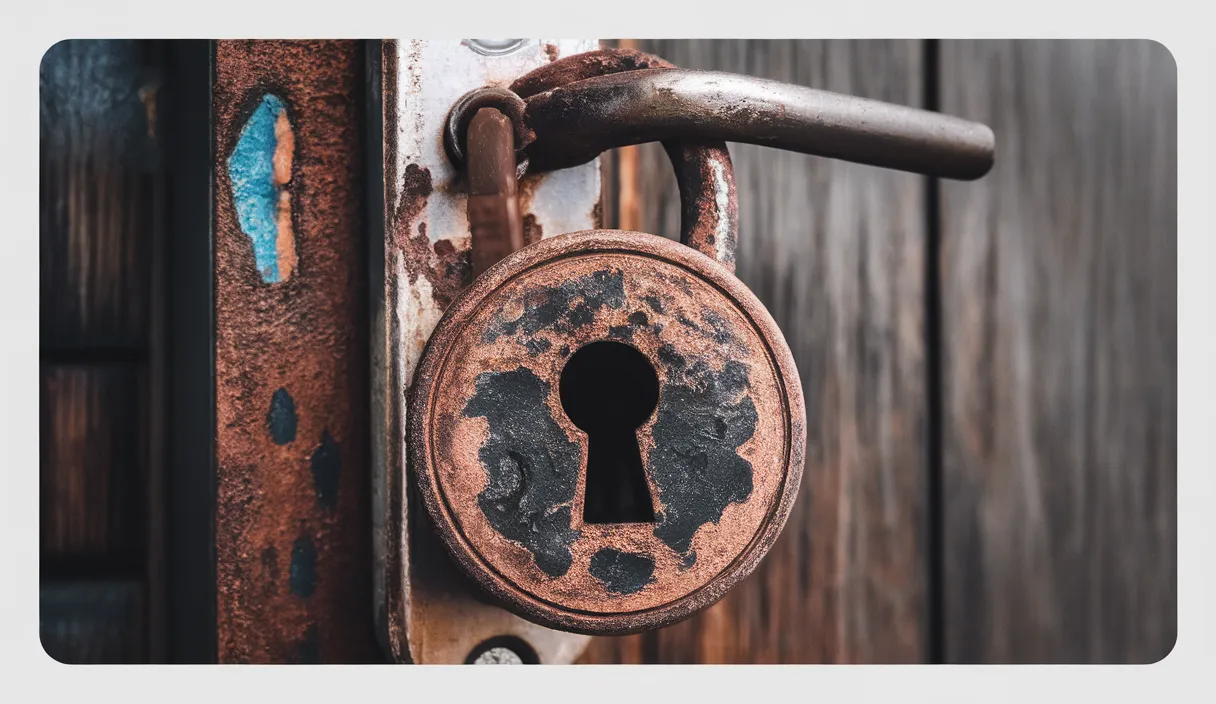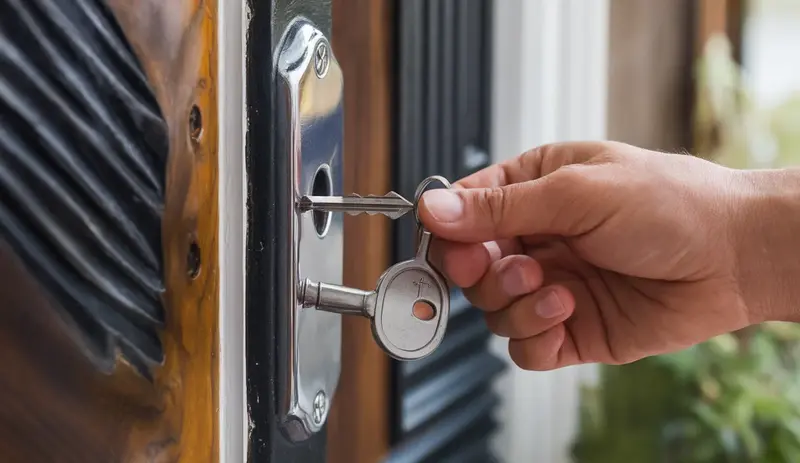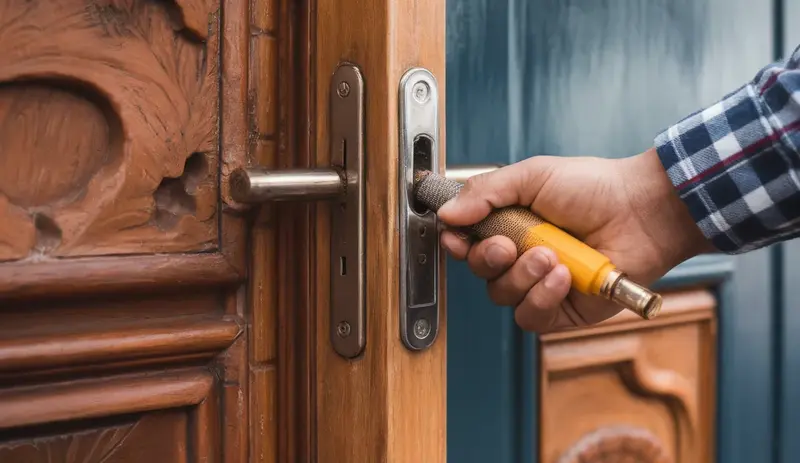
You’re fumbling with your keys after a long day, and something just feels… off. The key doesn’t slide in smoothly anymore. There’s a weird resistance, almost like the lock is fighting you. Is this normal wear and tear, or are you looking at a potential security nightmare?
Home security isn’t something you want to guess about. This guide will walk you through exactly how to spot a lock that’s on its last legs, saving you from potential break-ins or frustrating lockouts.
Warning Signs Your Lock is Begging to Be Replaced
Let us discuss the times when your lock begins to misbehave. You are hurrying and trying to get inside when the key suddenly feels as though it is locked in a contest with an invisible opponent. What was once a smooth process now feels as though you are performing a pick skill on a particularly challenging number lock. These aren’t just minor annoyances; they’re your lock’s way of sending an SOS signal.
When your key begins to stick or demands an unexpected level of effort to rotate, it signals more than just an inconvenience. It’s a classic warning sign that your lock’s inner workings are wearing down. Think of it like an aging automobile. Small annoyances today can lead to major breakdowns tomorrow.
Age Matters: How Old is Too Old for a Home Lock?
The majority of those who own homes do not understand that locks have a practically determined lifespan. On the whole, a good lock should serve you for a time range of anywhere from 7 to 10 years. But this is something you might not understand: that timeline can shorten drastically depending on the three variables of usage, the environmental conditions an external hardware piece is subjected to, and maintenance.
A lock that’s endured ten years of Michigan winters or coastal humidity might be ripe for retirement much sooner than you’d think. Even with normal use, constant exposure to the elements in an ever-changing climate can accelerate a lock’s deterioration to the point where it just might not serve as a reliable security measure anymore.
Visible Damage: What to Look For Beyond the Surface
When a lock starts to wear out, it doesn’t always show signs that are easy to see. Obvious things, like rust or corrosion, or any visible mechanical damage, are good reasons to think about changing the lock. But what about the not-so-obvious signs? You know, the secret signs that only a well-trained eye can detect? Well, here are a few of them. And they are all really good reasons to consider lock replacement.
At times, the harm is understated. A delicate sway when you put in the key, minuscule scrapes about the keyhole, or a lock that very nearly sits flush with the door-these are all indicators that your lock’s physical condition is, shall we say, not up to snuff.
You May Like: Lost Your House Key? Here’s Your Complete Survival Guide
When a Break-In Changes Everything
Having a break-in can profoundly change how you see home security. You realize it isn’t just about how well locks work or whether doors and windows can be forced open. It’s about how secure and safe you feel in your own home-and in your own neighborhood. When I talk to people who have experienced one or more incidents of home invasion, the thing that stands out most is the fear factor.
Often, professional locksmiths suggest that homeowners upgrade to high-security locks that have extra features like being pick-resistant or having reinforced strike plates. It’s not just a matter of replacing what was broken; they’re adding layers to the security that better protect the home from future break-ins. You can find expert locksmiths near you on Google Maps.
DIY vs. Professional: Making the Smart Choice
Thus, when should you get out your toolbox, and when should you get on the phone to a pro? Sure, swapping out a simple, standard deadbolt for a fresh new one might be a task easily handled by most skilled homeowners, but when it comes to complex installations, smart locks, or security systems, we’re big fans of calling in the pros.
If you are in a high-security setting with many entry points or complex locking systems, it’s not just wise but absolutely necessary to use a pro to put in your lock. They will make sure it fits and works like it should, and they might also offer some good advice on what kind of lock you need for your situation, whether that’s residential or commercial.
A lock is more than merely a piece of metal. It is the protector of your personal domain, the first barrier that keeps the outside world from waltzing right into your private area. You ought to respect it and all that it stands for and make safe what you have to keep safe.
Your home’s security isn’t about being paranoid – it’s about being smart. Trust your instincts. If something feels off with your lock, it probably is. A simple replacement can give you peace of mind and protect what matters most.


